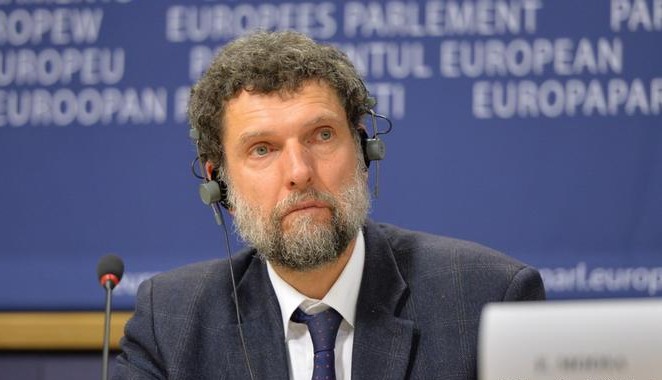Businessman and philanthropist Osman Kavala, who has been in prison since November 2017 without substantial evidence to justify the charges against him, has said he didn’t expect “such a bold detachment from the law” in Turkey at his trial.
Kavala, 66, faced charges that have ranged from espionage and financing anti-government protests in 2013 to taking part in a failed coup against Turkish President Recep Tayyip Erdoğan in 2016.
He was arrested in 2017 and sentenced to life in prison in 2022 for allegedly trying to topple Erdoğan’s government with the Gezi Park protests, which erupted in the summer of 2013 in İstanbul against government plans to destroy a park in central İstanbul.
Journalist İrfan Aktan from the Artı Gerçek news website interviewed Kavala through his lawyers and published the interview on Monday.
To a question about his belief in the functioning of the judicial system in Turkey, Kavala said he thought his case had progressed to an advanced stage in the politicization of the judiciary and the arbitrary use of the law.
“I didn’t expect such a bold detachment from the law,” he added.
Regarding his overall experience during six years of imprisonment, Kavala said his physical and mental health were fine but explained that neither being in prison nor the state of his country and the world allows for much happiness. He noted that despite the challenges, he still has hope.
Turkey’s refusal to abide by European Court of Human Rights (ECtHR) rulings to immediately release Kavala has damaged Ankara’s relations with Western allies.
The Council of Europe launched an infringement proceeding against Turkey over its treatment of Kavala.
Kavala said part of society doesn’t question the government rhetoric regarding his trial, and another part viewing issues such as the non-implementation of the ECtHR decisions as commonplace problems are the primary reasons for the lack of an influential public opinion about his case.
According to Kavala, the Justice and Development Party (AKP) government benefitted politically from the Gezi Park trial and that with the case, it sent a strong message to civil society organizations not to engage in activities that would disturb the authorities.
When asked about the infringement proceeding and such possible sanctions as Turkey losing its voting rights in the Parliamentary Assembly of the Council of Europe (PACE) and European countries initiating investigations into people involved in Kavala’s imprisonment, Kavala said while the decisions taken by the assembly have political significance, they are not directly binding on the council.
“It is the Committee of Ministers that makes binding decisions and oversees the implementation of ECtHR judgments. … For now, the realization of decisions made by the Parliamentary Assembly is not on the agenda. The Turkish government is aware of this,” he added.
In October PACE also adopted a resolution urging Turkey to comply with the judgments of the ECtHR and calling for Kavala’s immediate release.



